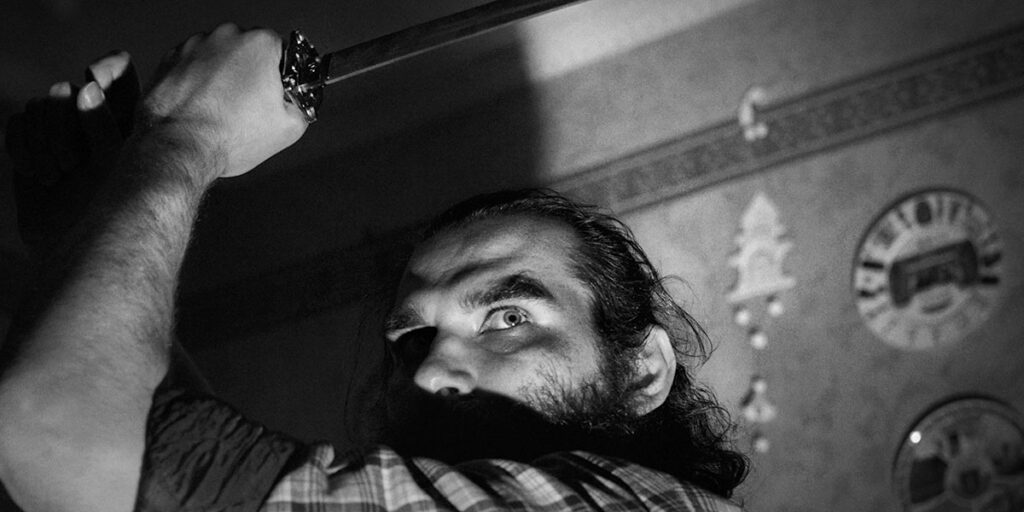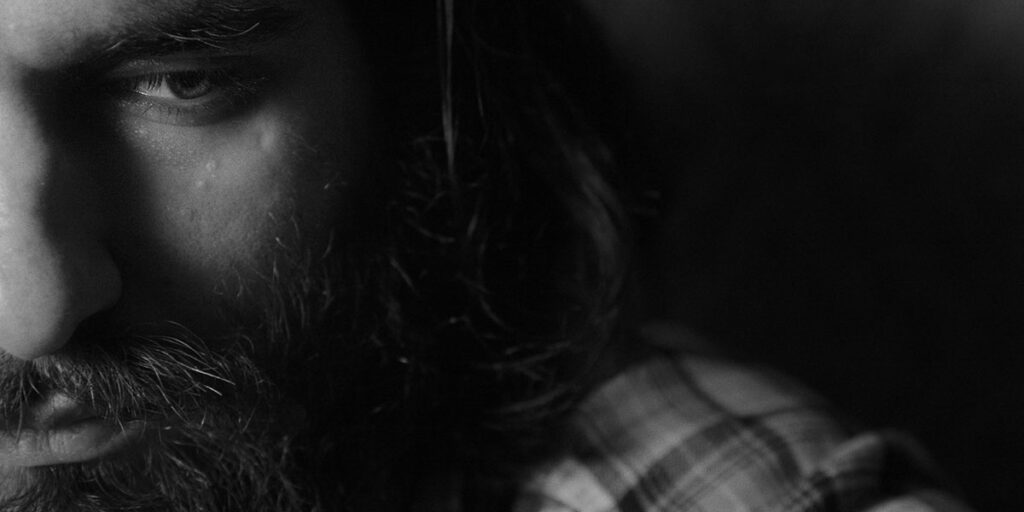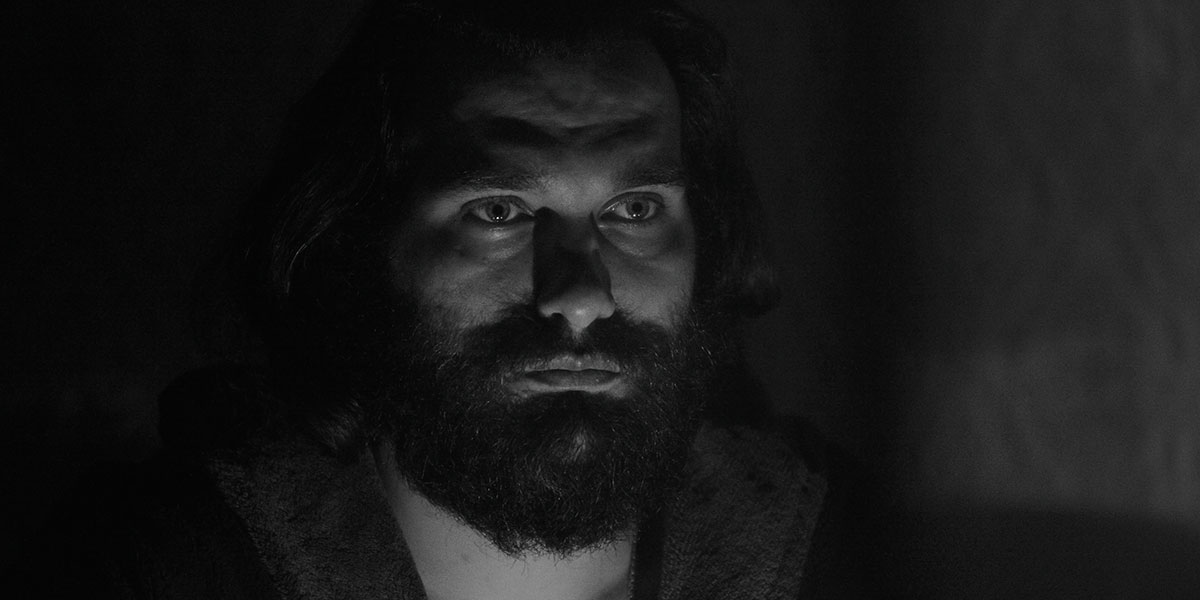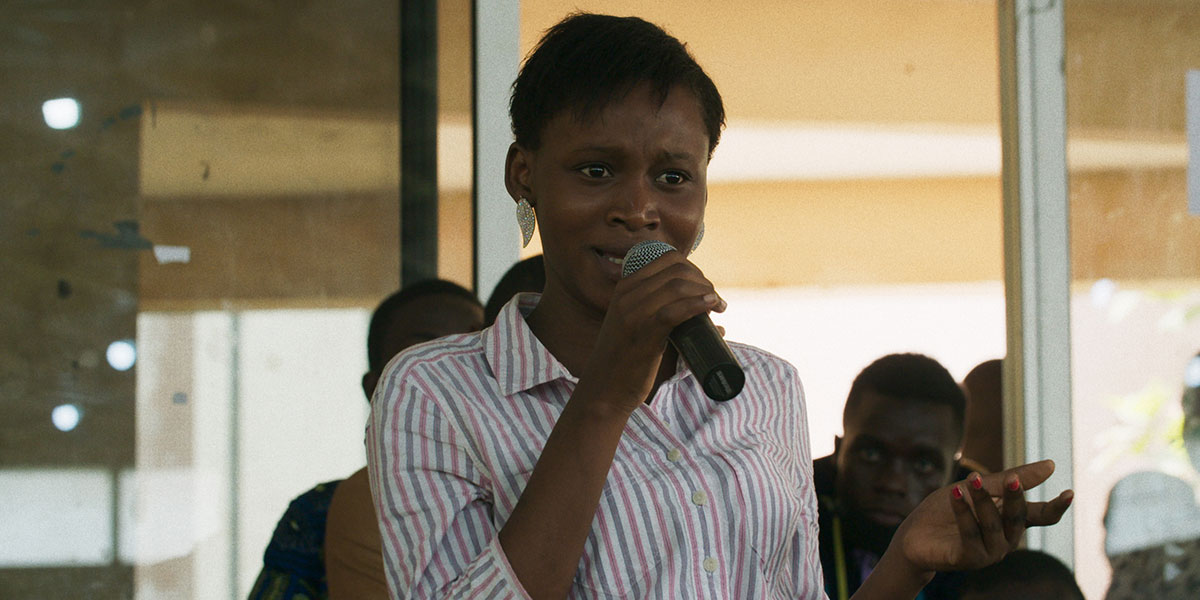“I think it’s probably one of the most difficult exercises in documentary to try to do a POV film and to stay with one single character,” says Viktor director Olivier Sarbil. The documentary, which has its world premiere in the Platform competition at this year’s Toronto International Film Festival, follows Ukrainian war photographer Viktor Korotovskyi. Sarbil, who previously co-directed On the President’s Orders about President Duterte’s crackdown on crime in the Philippines through a hailstorm of violence, has generally captured global conflicts through multiple perspectives. He previously shot docs like Matthew Heineman’s Retrograde (2022), which observes the withdrawal of American Green Berets from Afghanistan, and has also documented from the front lines in Libya, followed Iraqi Special Forces, and chronicled the hunt for ISIS. Like Viktor, he understands the power that images have in bringing peace to wartime, but also admits there’s a risk of chancing a doc portrait on one character in a violent war where nobody is immune.
However, by zeroing in on this one perspective of a complex war, Viktor portrays an experience of wartime with artful subjectivity. Viktor is deaf and his hearing disability complicates his desire to fight for Ukraine. That leads to his decision to become a war photographer and do something, anything for his country. He’s a crack shot with a gun, but a true sharpshooter behind the camera. Sarbil accompanies him to war zones as he captures the troops in action, while shots of Viktor in his home show off his cinephilia and love for Samurai movies. He swings his katana around, imagining the codes of honour that define battle.
Sarbil, who knows the stakes of the battlefield, respects these codes as well by filtering Viktor’s story through his subjectivity. The film employs a dexterous sound design that conveys the experience of being in a war zone while deaf. Sarbil, working with the same Oscar winning sound design team that pulled off a groundbreaking coup in the 2019 drama Sound of Metal, dials the sonic elements in and out to put viewers in Viktor’s headspace. The film, shot in stark black and white, evokes Viktor’s own worldview, offering further insight into the ways in which he perceives the war. It’s an effective portrait from one war photographer to another.
POV spoke with Olivier Sarbil via Zoom ahead of Viktor’s premiere at this year’s Toronto International Film Festival to learn about his own in earrings, collaborating with Viktor, and working with Darren Aronofsky as producer.

POV: Pat Mullen
OS: Olivier Sarbil
This interview has been edited for brevity and clarity.
POV: What was it about Viktor that really struck you as an interesting character to follow? How did you meet?
OS: We met simply on Facebook. But to give you a bit of backstory, more than 10 years ago, I lost hearing on my right side during the war in Libya. It really shaped the way I understand the world and my perception of sound. This perspective drove me to explore the story of a deaf man at the backdrop of a war. When I arrived in Ukraine, I started to cast my characters and met a lot of people from the deaf community. But when I met Viktor, it was one of those moments where, as a documentary filmmaker, you meet a character and you say yourself: “That’s it. That’s the one.” My instinct told me that Viktor has so much charisma. He is an artist, he has a great passion for cinema, and he loves photography. I connected with him very quickly.
POV: Was it a challenge to access the front lines?
OS: To have access in a war zone is always challenging. It doesn’t matter if you are deaf or not, it’s always difficult. You always have to fight to try to get the access. You need to have accreditation, obviously, to pass one checkpoint, another checkpoint, and there is the war, but then you have the frontline and then you have the battlefield and you have to pass all those steps. But Viktor got an accreditation, so he was allowed to travel and to pass checkpoints with us and to document the war on the battlefield. We could not have done this without an accreditation. You need to have an official accreditation.

POV: When you’re working with someone who is also shooting the war, how much do you collaborate on visuals? How much does what we see on the screen reflect Viktor’s photography?
OS: Some of the choices that I’ve made for the film, like the black and white, was inspired by Viktor himself. I didn’t go to Ukraine and say, “That’s it: I’m going to make a film black and white.” I actually started to shoot the film in colour, but gradually, organically, as I was getting to know Viktor, we developed a strong connection. This is when I shifted to black and white. Viktor believes that the black and white brings out a greater sense of fairness and balance to the world. That perspective drove me to show the way Viktor sees and experiences life.
POV: A sense of collaboration also comes through in the sound mix because it has a really sophisticated way of conveying how Viktor hears the situation. To what extent does that reflect your own hearing in the field and what was the process of creating that mix?
OS: The sonic impression of the film is one of the crucial elements of Viktor. I collaborated with an amazing team of sound designers, Nicolas Becker and Peter Albrechtsen. They worked on Sound of Metal and have worked extensively with the deaf community. The idea was to create organically a sound for the deaf world that helped the audience dive into the inner life of Viktor and also to understand what’s happening in his body. The collaboration started at the early stage of the filmmaking. Even when I was in production, I was already in touch with the sound design team. It’s difficult for me because I have to do the sound by myself when I’m on the ground, but we were constantly in collaboration with those guys until the mix. The sounds play a crucial role in the film.
POV: How do you get feedback from Viktor on the soundtrack? To what extent can he hear the product that’s come through it?
OS: At the end of the day, it is subjective. We will never really know what Viktor is hearing. We tried to use tools that would help the audience dive into that inner life. But we can’t tell for sure what Viktor is hearing.

POV: What role does sound play in your work as a cinematographer, especially when you’re in a war zone? There must be sounds coming from all directions. To what extent does that guide what you’re shooting?
OS: When you work in a war zone, it requires a certain skill and a lot of experience. My filming in war is very instinctive. I try to compose, keep calm, and keep the best framing as possible. I don’t like shaky shots—you just have to follow your instinct because you never know when something will happen. It is very stressful. You need to move fast. I work with the [Canon] C500, but I strip it out to make it as compact and small as possible. You need to have a very strong sense of awareness constantly and you need to adapt very quickly. When I’m in the most stressful environments, I try to get what is front of my lens. When I have more time, I can think more about the scene or sequence. When I’m in the trenches or in the dark, I just follow what I can.
POV: You were injured a few years ago during a shoot. Has that changed your approach to shooting in a conflict zone? Do you now have a sense of fearlessness?
OS: It does change a lot. Actually, it’s the opposite. Before, very naïvely, I thought I was invincible. You believe that [violence] is happening to those people, it’s not going to happen to you. I was risking my life, being in those places, and when I’ve been wounded, I felt very vulnerable. Of course it totally changed the way I see the world and the way that I approach filming in war zones. But, for example, when it comes to the deafness in my right ear as a filmmaker, after I lost my hearing in a battlefield, going back to a war to tell the story of a deaf man became a very personal project for me. I think it really mirrored my own struggles. For many years, I’ve been hiding my single-sided deafness. It’s not something I was talking to people about. The first few years there was a bit of denial when I’d been wounded in Libya—you see, I lost also a bit of my hand. [Sarbil raises his hand, which is missing a pinky.]
My right ear was not my priority, but there was fear of losing work. I was not telling people that I lost hearing in one ear. I like to say that I found Viktor, but also Viktor found me. He helped me be more open about my single-sided deafness. Now, when I go to war, the scars help you to build a connection with the fighters. For example, when you need to get access, they respect when you carry the scars. My whole body is covered with scars, so they know that I know what it’s like to suffer.

POV: Other portraits of the war in Ukraine have shown that this situation is also a war of misinformation and propaganda from the Russians. Did that element of misinformation and propaganda come into play while you were shooting?
OS: It’s not a current affairs doc or investigation film. I looked at the news for safety purposes, but I wanted to focus on my contributor. I wanted to stay on Viktor as much as possible and not distract myself with one event or another. Sometimes when you operate in war zones, the risk is that you see something and you’re tempted to leave your story because you say, “This is big, this is important, I need to go.” But then you leave your contributor. When you are at the micro level of a war, you have a very intimate view of what’s happening. You don’t always have the full picture and the perspective of the surroundings. If you living with a couple of soldiers in a basement for days, the only thing that matters is staying alive and filming their daily life.
POV: The film gives us Viktor’s “voice” in the narration and it’s a very unique voice. How did you develop that sound?
OS: I didn’t want to do traditional interviews. Viktor is an amazing writer, he’s a poet. He wrote the narration. Every other day, I would ask Viktor, “Viktor, can you write about darkness? Viktor, can you write about your mom? Viktor, can you write about a meal you just prepared? Please write.” At the end of the process, we had around 50 page of Viktor’s journal that we had to break down to one or two page. Then we needed Viktor to read the narration. Viktor felt more comfortable reading it using sign language. When he’s using sign language, he is also whispering. That’s the voice you hear from the narration that is a bit different than his normal voice. We placed a mic very close to his mouth to get that sound. We thought it was very deep and an interesting sound for the narration.
POV: How did Darren Aronofsky become involved in Viktor? I’ve seen his name come up now in a few documentaries as a producer or executive producer, and he’s involved with some very interesting work.
OS: In 2020, I was based in London and I received out of the blue an email from Darren. It was amazing. I remember it was a Sunday. I replied immediately. He was very nice. A few weeks later I was in New York meeting his team, Dylan Golden and Brendan Naylor. We wanted to collaborate and make a documentary. We were developing a few ideas, but, unfortunately COVID happened and then I joined Matt for Retrograde. It took a couple of years. When the war [in Ukraine] was about to start, I approached Protozoa and Darren again, and this is where the project started. Darren and I kept in touch during the whole filming process. One thing that I have to say with Darren, the whole production team actually was really great in supporting my creative vision for the film. I really respect that.













